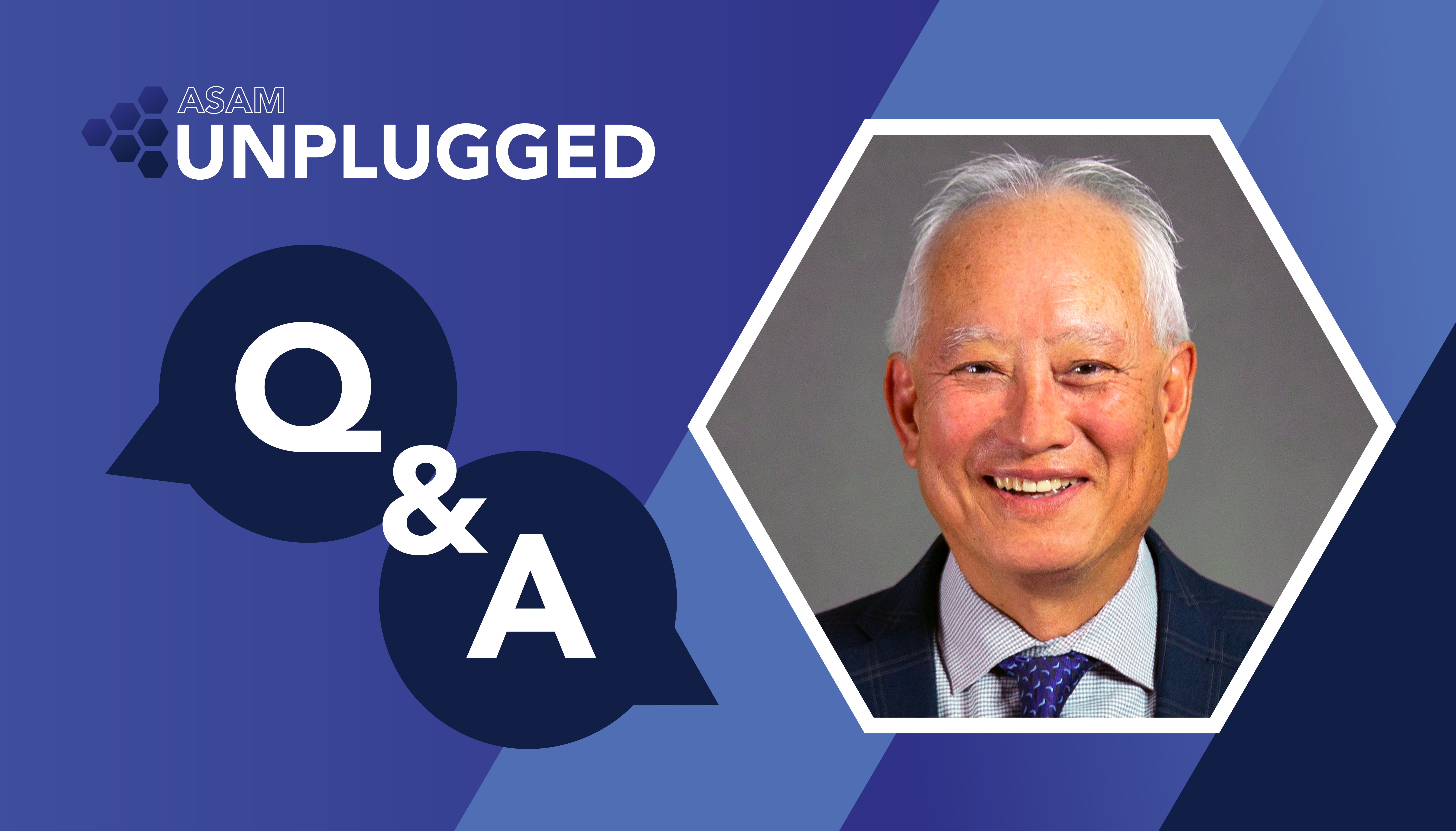ASAM Criteria Unplugged: A conversation with Dr. David Mee–Lee

In Episode 1 of our ASAM Criteria Unplugged series, we talk with psychiatrist, addiction treatment specialist and editor-in-chief of the first three editions of the ASAM Criteria, Dr. David Mee-Lee.
In a live conversation with The Change Companies Chief Program Officer Valerie Bagley and Train for Change Senior National Director Scott Boyles, Dr. Mee-Lee discusses some key advancements that have been made during his decades in the addiction treatment field, and what progress we can look forward to in the years ahead.
Jump ahead to questions covered in this article:
- How did you describe the ASAM Criteria when you were first trying to illustrate the benefits of person-centered, individualized care to providers?
- What are the challenges people are continuing to face with moving toward a more person-centered treatment approach?
- What are some themes that come up in questions posed for "Stump the Shrink" column?
- What are some of the unique innovations you're seeing in treatment courts?
- When clients are mandated to treatment, what are some tools to help them progress through the levels of change?
Q: How did you describe the ASAM Criteria when you were first trying to illustrate the benefits of person-centered, individualized care to providers?
Dr. Mee-Lee: "This is not about dismantling treatment, this is about expanding treatment and expanding the reach of the resources that we have. Expand out our continuum of care, give people more care for the same amount of money and hang in with people through the lifetime of their recovery.
Current practices focus more on what is the standard than asking what does the client need, how do we do a treatment plan that makes sense for them in a collaborative way, and then, is it working. Does it fit and does it work is really all you have to think about in terms of treatment."
Q: What are the challenges people are continuing to face with moving toward a more person-centered treatment approach?
Dr. Mee-Lee: "Up until the last few years, the ASAM Criteria have been 'nice to know' and not 'need to know.' We still have a lot of programs where a client coming in is still going to be told a set length of stay. We're still thinking about people needing to comply with the rules and to get through the program. So, we've come a long way, but we've still got a long way to go toward viewing treatment as a continuum of care.
At it's basic essence, it's about person-centered individualized treatment... That means that we have to be measuring outcomes much more clearly rather than measuring how well the person complies with the rules of the program. Are they actually changing and getting better?"
We're here to help. For more on implementing the ASAM Criteria at your organization, check out the ASAM Criteria Implementation Guide or contact our team today.
Q: We're long-time supporters of your Tips and Topics newsletter. What are some themes that come up in questions posed for "Stump the Shrink" column?
Dr. Mee-Lee: "The interface between justice services and treatment services — a lot of those questions have focused on 'how do we work with people who are public safety dangers?'
Criminal justice and justice services often worry about making changes for individuals because everyone's got to be lock-step. We're helping to try to say 'no, person-centered treatment is not about being soft on people, it's actually about holding them more accountable when you're holding them to a treatment plan that they collaborated on.'
It's about balancing compliance with individualized treatment, and changing the mentality that we're here to try to get people in a behavior-controlled way to comply. We're here to get them to adhere, not just go through the motions and sit here and 'do time,' but be held accountable in choosing treatment."
Q: We're seeing a rise in alternative justice interventions like treatment courts. What are some of the unique innovations you're seeing there?
Dr. Mee-Lee: "There have been great strides in AllRise and treatment courts. Increasingly, treatment courts are getting much more sophisticated about trauma and about the importance of making sure people have individualized treatment... of learning how to deal with people who have flare ups and not just using a behavior modification model.
We've seen recognition from treatment courts and justice services to say 'yes, we want to make sure that people are safe and embrace what we know works from current models, but we also need to broaden our awareness that people have trauma, that people don't even know how to be honest when they've been in the throes of addiction' — some of these attitudes are changing within the treatment court.
We want to make sure our resources are being used to actually help people change, decrease crime, and increase public safety... Which is very hopeful."
Q: One question submitted by the audience is: When clients are mandated to treatment, what are some tools to help them progress through the levels of change?
Dr. Mee-Lee: "Often treatment providers treat that person as if they're being mandated to compliance with a treatment model and a treatment program, rather than being mandated to behavior change — which is really what the job of treatment should be. Attract that person to the treatment and recovery process. That means that most treatment, especially for mandated clients, is going to be less about relapse prevention and more about keeping this person coming back to work at their own pace. The focus needs to be on meeting people where they're at and holding them accountable to what they said they want to do."
Register here for our next ASAM Criteria Unplugged session! Be the first to learn about upcoming webinars and open-registration events by signing up for our newsletter.



